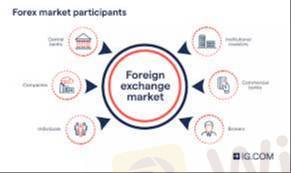
2025-02-18 00:52
IndustryCRYPTOCURRENCIES VS TRADITIONAL FOREX MARKET
#firstdealofthenewyearastylz
Cryptocurrencies and the traditional forex market (foreign exchange) both involve trading currencies, but they have key differences in how they operate. Here's a simple breakdown:
1. Market Structure
Cryptocurrency Market: Decentralized, meaning it's not controlled by any single entity like a bank or government. Transactions happen on blockchain networks.
Forex Market: Centralized to some extent, regulated by banks, financial institutions, and governments. It operates through a network of banks and brokers.
2. Trading Hours
Crypto: Open 24/7, including weekends and holidays.
Forex: Open 24/5, operating in different time zones (London, New York, Tokyo, etc.).
3. Volatility & Risk
Crypto: Highly volatile, with price swings of 10-20% in a single day being common.
Forex: Less volatile, with daily price movements usually below 2%.
4. Liquidity
Crypto: Lower liquidity compared to forex, meaning large trades can impact prices significantly.
Forex: Highly liquid, especially major currency pairs like USD/EUR, meaning trades happen smoothly without drastic price changes.
5. Regulation
Crypto: Lightly regulated or unregulated in many places, leading to potential security risks.
Forex: Heavily regulated by financial authorities (e.g., SEC, FCA, CFTC), offering more legal protection to traders.
6. Trading Pairs
Crypto: Includes thousands of digital assets (Bitcoin, Ethereum, etc.), often traded against USD, USDT, or BTC.
Forex: Primarily major global currencies (USD, EUR, JPY, GBP, etc.).
7. Leverage & Trading Strategies
Crypto: Leverage varies but can be extremely high (up to 100x in some cases), increasing both risk and reward.
Forex: More controlled leverage (typically 50x for major pairs), reducing the risk of total losses.
8. Storage & Security
Crypto: Requires digital wallets for storage, and there’s a risk of hacking or losing private keys.
Forex: Funds are held in broker accounts, typically safer due to regulations.
9. Accessibility
Crypto: Anyone with an internet connection can trade without needing a bank account.
Forex: Requires a broker and sometimes a bank account, making it less accessible in some regions.
Which One is Better?
If you prefer stability, regulation, and high liquidity → Forex is better.
If you want 24/7 trading, decentralization, and high-profit potential (but with high risk)
Like 0

Babatunde5040
Broker
Hot content
Industry
Event-A comment a day,Keep rewards worthy up to$27
Industry
Nigeria Event Giveaway-Win₦5000 Mobilephone Credit
Industry
Nigeria Event Giveaway-Win ₦2500 MobilePhoneCredit
Industry
South Africa Event-Come&Win 240ZAR Phone Credit
Industry
Nigeria Event-Discuss Forex&Win2500NGN PhoneCredit
Industry
[Nigeria Event]Discuss&win 2500 Naira Phone Credit
Forum category

Platform

Exhibition

Agent

Recruitment

EA

Industry

Market

Index
CRYPTOCURRENCIES VS TRADITIONAL FOREX MARKET
 Hong Kong | 2025-02-18 00:52
Hong Kong | 2025-02-18 00:52#firstdealofthenewyearastylz
Cryptocurrencies and the traditional forex market (foreign exchange) both involve trading currencies, but they have key differences in how they operate. Here's a simple breakdown:
1. Market Structure
Cryptocurrency Market: Decentralized, meaning it's not controlled by any single entity like a bank or government. Transactions happen on blockchain networks.
Forex Market: Centralized to some extent, regulated by banks, financial institutions, and governments. It operates through a network of banks and brokers.
2. Trading Hours
Crypto: Open 24/7, including weekends and holidays.
Forex: Open 24/5, operating in different time zones (London, New York, Tokyo, etc.).
3. Volatility & Risk
Crypto: Highly volatile, with price swings of 10-20% in a single day being common.
Forex: Less volatile, with daily price movements usually below 2%.
4. Liquidity
Crypto: Lower liquidity compared to forex, meaning large trades can impact prices significantly.
Forex: Highly liquid, especially major currency pairs like USD/EUR, meaning trades happen smoothly without drastic price changes.
5. Regulation
Crypto: Lightly regulated or unregulated in many places, leading to potential security risks.
Forex: Heavily regulated by financial authorities (e.g., SEC, FCA, CFTC), offering more legal protection to traders.
6. Trading Pairs
Crypto: Includes thousands of digital assets (Bitcoin, Ethereum, etc.), often traded against USD, USDT, or BTC.
Forex: Primarily major global currencies (USD, EUR, JPY, GBP, etc.).
7. Leverage & Trading Strategies
Crypto: Leverage varies but can be extremely high (up to 100x in some cases), increasing both risk and reward.
Forex: More controlled leverage (typically 50x for major pairs), reducing the risk of total losses.
8. Storage & Security
Crypto: Requires digital wallets for storage, and there’s a risk of hacking or losing private keys.
Forex: Funds are held in broker accounts, typically safer due to regulations.
9. Accessibility
Crypto: Anyone with an internet connection can trade without needing a bank account.
Forex: Requires a broker and sometimes a bank account, making it less accessible in some regions.
Which One is Better?
If you prefer stability, regulation, and high liquidity → Forex is better.
If you want 24/7 trading, decentralization, and high-profit potential (but with high risk)
Like 0
I want to comment, too
Submit
0Comments

There is no comment yet. Make the first one.

Submit
There is no comment yet. Make the first one.